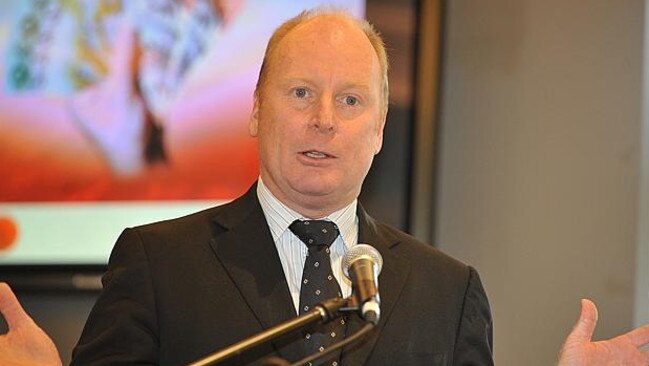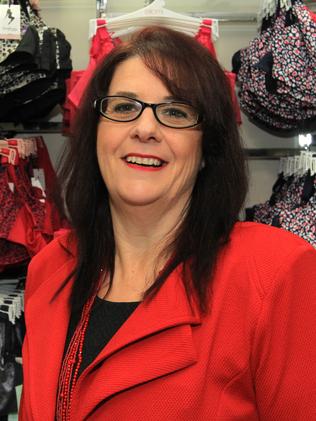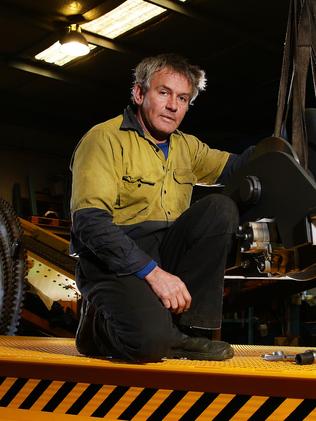Ross Greenwood on small business: More couples have one partner keeping day job and paying bills
CASHFLOW is king for any small business, and especially for those starting. Mortality rates of new enterprises are extremely high, but rewards for those who make it can be significant.

CASHFLOW is king for any small business, and especially for those starting out. The mortality rates of new enterprises continues to be extremely high, but the rewards for those who make it can be significant.
My observation is that more younger people are recognising the potential rewards of starting their own business. It has all of the attractions that have always been there: independence, testing your own theories, the potential for significant reward. As the whole community has become more savvy about finances, it has become increasingly obvious to more people that working for wages is no method for achieving wealth. Though the risks of running your own business are high, the potential gains makes more people prepared to have a crack at it.
But, as many farming families have found over the years, there still needs to be income to pay the utility and food bills at home, while the entrepreneur seeks the speculative gains from the private business.
Issues can cause couples to delay families or, if children arrive, it can cause pressure on the business if the “off-farm” income dries up.
In the case of farming families, this is the off-farm income that is invaluable during times of drought or poor commodity prices. For those rural families, the level of employment in country towns during hard times is tougher, which can compound the problems on the farm.
In the cities, the work is generally more plentiful but it seems more young couples are copying the example of their rural cousins by having one partner speculate on the new business, while the other keeps the day job and pays the bills.
The hope is that if the venture works, the family will be more financially secure in the longer term.
But the stresses of small business and cashflow problems can never be forgotten.
They can create pressure inside families when money is tight and when the effort put in by both partners seems to be coming to nothing. The money issues can cause couples to delay families or, if children arrive, it can cause pressure on the business if the “off-farm” income dries up.
The odd thing is that little or no research has been done on the families that have one partner in business and the other generating an income.
All these things need to be taken into account when setting up any business, because failure can occur simply because a family cannot withstand the battering to their cashflow and bank account, not necessarily because the idea was bad.
What is also clear is that the ideal times to set up a business are when there are two incomes and no children to support — generally when couples are in their 20s or early 30s or, if the kids are off your hands early, when you are in your 50s and the kids have left home and can support themselves.
The odd thing is that little or no research has been done on the families that have one partner in business and the other generating an income — yet my casual observation of 70 or so small businesses for this column suggests it is increasingly the case.
It would be nice to know the success rates of these families compared with others that go into their own business. Common sense would tell you their survival rate should be higher — but at what extra cost in terms of personal stress would be interesting to know as well.
BUSY PAIR ARE WEDDED TO WORK
With most couples opting to have one partner working and the other in business, Mick Toohey and his wife Maria must be gluttons for punishment.
They each have separate businesses. So, on a Sunday evening when I spoke to them, what are they doing? Paperwork.
“I do all Mick’s paperwork and accounts as well, but we have this thing where we are not allowed to do any networking on Friday. Friday night is family night,” Maria says.


Like many people, Mick came to his business M2E Maintenance because his former employer went broke. Having grown up on a farm — and with a welding kit in his hands since he was 12 or so — Mick’s business is about the manufacturing and maintenance of a range of attachments for trucks, earthmoving equipment and excavation machinery.
Not content to sell someone else’s product, Mick has designed and manufactured a range of products including rock-saws, diamond drill cores, rippers, fork tynes and sieve buckets.
The beauty of Mick’s M2E Maintenance is the breadth of industries he can make products for. As he says: “Sometimes saws are flat out then rail equipment and then there will be repairs. Between three different things, I am always doing something.”
And so is his wife Maria, who runs the award-winning business Heavenly Curves — based in Wetherill Park. She has long run the business that caters for more generously sized lingerie, but is finding success in being a specialist in fitting and creating bras for those who have suffered breast cancer.




